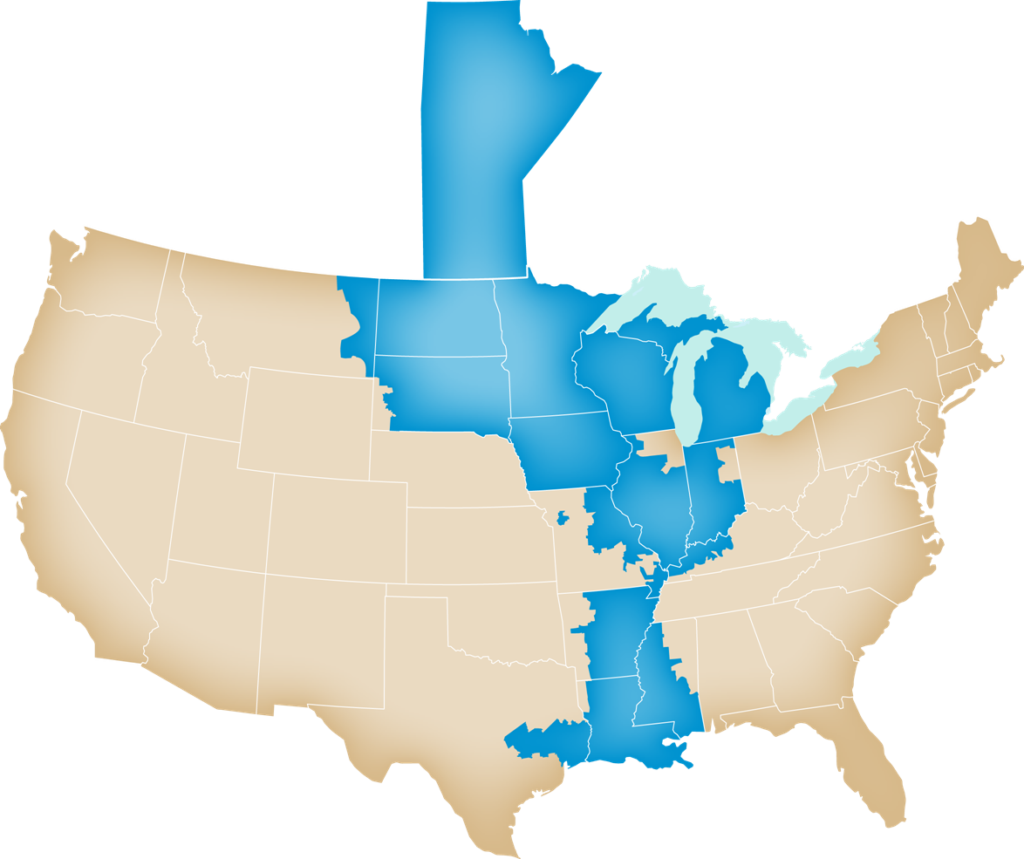
While spring can still be a bit chilly in Minnesota, we are thankful to have left behind the coldest days of winter. This February, in particular, brought a long stretch of sub-zero weather that challenged our nation’s electric system. As parts of the United States struggled to maintain electric service during the historic cold snap, Minnesota’s cooperatives went to great lengths to ensure their members had the energy they needed.
In mid-February, cold weather across the country drove up demand for natural gas and electricity to such an extent that some regions experienced rotating power outages. Thankfully, Todd-Wadena’s members continued to receive reliable electric service throughout the duration of the cold snap. This reliability is due, in part, to Great River Energy (GRE). Serving as Todd-Wadena’s wholesale power provider, GRE has a system designed to provide reliable electricity even in extremely cold weather.
A Rapid Response

Each year, Great River Energy employees complete training on the proper protocols to respond when the Midcontinent Independent System Operator (MISO) declares a “capacity and energy event” like the one that occurred in mid-February.
MISO is the grid operator for 15 U.S. states and the Canadian province of Manitoba. It oversees the operation of the bulk power transmission system, facilitates an energy market, and has responsibility, along with its members, for maintaining electric reliability across its system. The transmission team rose to the challenge, responding quickly and safely to the needs of member-owners and the transmission grid.
Producing More Electricity
Great River Energy’s power supply resources – which include coal, gas, and fuel oil based power plants as well as wind energy resources – performed as planned for extreme weather events.
The coal-based Coal Creek Station and Spiritwood Station operated throughout the cold weather with no issues. Great River Energy’s peaking stations operated as designed, injecting electricity onto the grid quickly and dependably when needed. Most of GRE’s peaking plants are “dual fuel” facilities, which means they can operate on fuel oil when demand for natural gas is heightened or in short supply.
Reducing Energy Needs
Great River Energy deployed its demand response programs — a strategy that reduces demand for electricity during events such as a polar vortex. More than 200,000 cooperative members participate in these voluntary programs, which allow GRE to temporarily interrupt, or “cycle,” water heaters, space heaters, or other electric loads for a period of hours on high-demand days.
Over the course of a few days, GRE’s member cooperatives collectively reduced hundreds of megawatts of electricity demand. This alleviated stress on the electric grid and allowed GRE to avoid expensive purchases from the energy market during both morning and evening peak periods. This, in turn, helped keep our Todd-Wadena Electric purchases from becoming overly expensive.
Rolling Blackouts: Could They Happen Here?
The Midwest electric grid looks quite different from Texas, which experienced widespread rolling blackouts in February. Most utilities in Minnesota are part of a much larger and geographically diverse energy market coordinated by MISO, which is physically interconnected to other transmission grids. Unlike most of the Texas grid, this allows our region to more easily “import” and “export” electricity. Most of Minnesota is located in MISO’s northern region which includes generating resources using a wide variety of fuel sources and technologies, both conventional and renewable. Power plants in the northern states are also designed to operate in very cold weather.
At no point during the polar vortex were rolling blackouts considered in the MISO North region. MISO works aggressively with its member utilities to plan for emergencies, and rolling blackouts are only used as a last resort to prevent more widespread outages.
Weather like Minnesota experienced in February certainly presents challenges on the electric grid, but we were prepared for it. Planning for these kinds of events by Todd-Wadena Electric Cooperative, Great River Energy, and MISO North helped ensure resources and resiliency practices were ready for the challenge.
